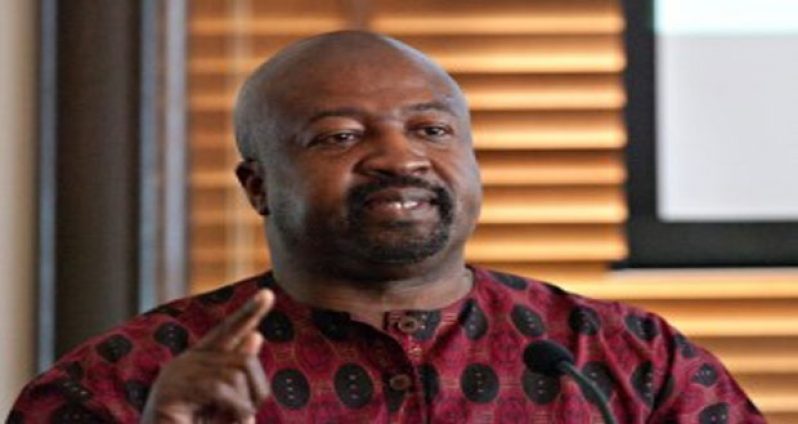WE often talk about race in Guyana as if it is a figment of people’s imagination – false consciousness. But it is not; it is real. Race as biology has been proven to be unreal. But race as social, political, economic and cultural practice is real. The concept of race was first developed in the United States in the late 1600s as a justification for the rise of plantation slavery. It gave social meaning to skin colour. Blackness came to mean less than human while whiteness came to mean fully human.
The German philosopher, Hegel, was quoted as saying: ‘To be human is to be white’.
Thomas Jefferson would later remark that Blacks were inferior in body and mind and do not feel life’s pains as other groups. Other White thinkers concluded that Black people could not exist in a state of freedom. Hence it would be dangerous to free them from slavery.
Blackness became synonymous with, among other things, backwardness, indolence, shallowness, unreason and laziness. This characterisation of Blackness as inferior – the White Racial Frame — found its way into laws and socio-economic and political policies.
Over time such laws and polices inevitably begun to shape people’s consciousness about blackness and, by extension, whiteness. This ‘White Frame of Blackness’ or Racism became the core of a dominant global ideology that would inform European and American expansion in the form of the Atlantic Slave trade, Plantation Slavery and Colonialism and internal colonisation such as American Segregation and South African Apartheid.
The key in all of this is power. Whites were able to use their political and economic power to turn their anti-black prejudices into law and policy. This is the essence of race – Give meaning to skin colour and then use your power to institutionalise that meaning. It is called Intuitional or Structural Racism. One Guyanese social scientist, Freddie Kissoon, has called it Ideological Racism.
Other ethnic groups inevitably adopted this ideology of anti-Blackness. Everyone wanted to be white; they avoided blackness. In the United States, for example, where after 1865 one could only be legally Black or White, all, but one or two, non-white applicants for citizenship wanted to be white. Even free fair-skinned Blacks tried hard to “Pass for White.”
At the core of the construction of Blackness is violence. Blackness is constructed as the embodiment of mindless violence. Because, as Jefferson observed, they do not feel life’s pain, are more emotional and devoid of human reason, they readily reach for violence. Other more “enlightened” theorists have contended that because Blacks had to fight back against oppression for so long they have developed a reflex for violence. Since the Black Male has been seen as the vanguard of this violence, he is to be feared. And the way you deal with this danger of Black Maleness, which often include the “bad, militant” Black female, is to develop laws and institutions to combat it. This need to combat Black savagery has been at the core of “Law and Order” in places where Blacks live.
This brings me to Guyana. We have inherited a Colonial Law and Order praxis that is grounded in keeping Blacks in their place and combating this presumed savagery. Our post-colonial state, despite some tinkering here and there, has maintained the colonial outlook and praxis. Anti-Black racism is at the core of the state behaviour, in particular state violence. Some will say it is not anti-black, it is anti-poor. It is both. But when those laws and behaviours were constructed, social class was not the issue. Slavery was not about social class, it was about race.
That Black males have continued to be victims of police “law and order” in every part of the world is no accident.
(Dr David Hinds, a political activist and commentator, is an Associate Professor of Political Science and Caribbean and African Diaspora Studies at Arizona State University. More of his writings and commentaries can be found on his YouTube Channel Hinds’ Sight: Dr. David Hinds’ Guyana-Caribbean Politics and on his website www.guyanacaribbeanpolitics.com. Send comments to dhinds6106@aol.com)
By David Hinds





.jpg)








